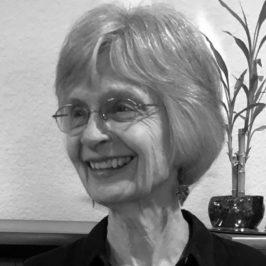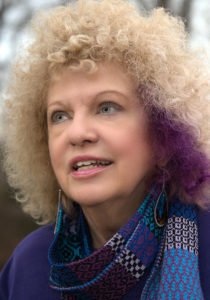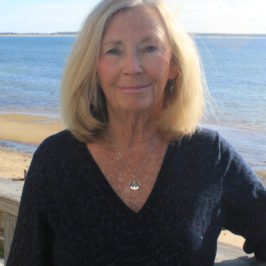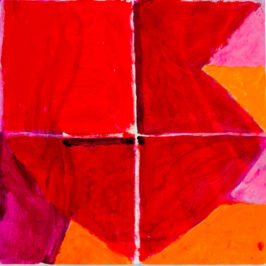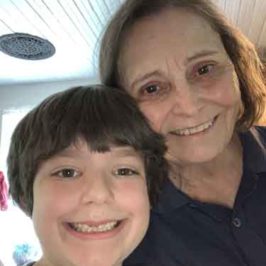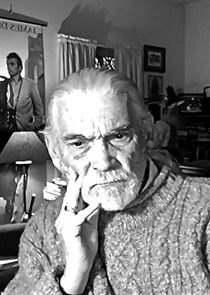
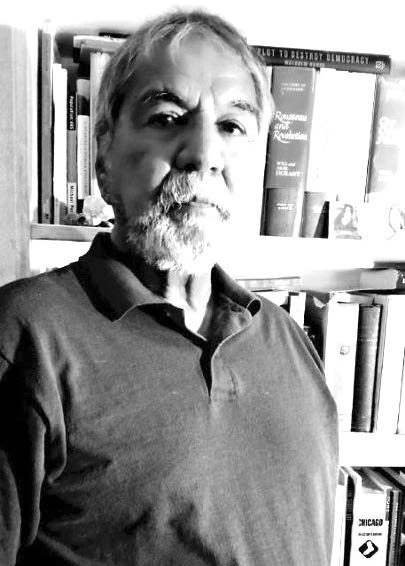
Late December, lights shining in the darkness, with inspiring words from Andrew Brown and Gilbert Arzola.
6 minutes
TRANSCRIPT
It’s late December. It’s a time of darkness. And it’s also the month of the Christmas Star and Chanuka candles and the Kwaanza kinara and holiday lights. It’s the month to look forward to a new year with renewed hope, to remember the light.
Andrew Brown said, “My writing has been shaped by my cultural background, part Lakota child of the prairie grasses and sweeping sky, and by great writers like Ernie Pyle and Ernest Hemingway. My short story ‘Upon a Midnight Clear’ is gleaned from Nobel Prize winner Elie Wiesel’s teaching that eternal truths are not arrived at through logic so much as through the stories we construct out of life experiences . . .” Here are some excerpts.
I’ve never liked Christmas. I find no joy in it at all. Christmas as I knew it as a child is for me nothing but a memory of loss. It is a memory of long hospital wards, and row after row of beds, of unguent smells mixed with the sweet, cloying odor of suppurating, burned flesh . . .
My father was a doctor, and my mother was his assistant. He was in the army and died in December 1941. My mother then took his place in the military . . . By 1942 mother had taken on the administration of the largest Air Corp hospital laboratory in the country at Hunter Field in Savannah, Georgia . . .
In my school, Blessed Sacrament, we collected cans, paper, string, and bits of anything that might help win the war effort. A war, we were told, that was good and righteous . . . If a family had lost a son or father in the service they put a star in their window. In school we knew whose fathers were not coming home. In art class the nun would touch those of us who had a gold star in our window lightly on the head to say we were excused from making our daddy a Christmas card . . .
One Christmas, when I was poised between childhood and reality, my mother volunteered me to be Santa’s elf at the airbase hospital. My job was to go with Sergeant Pryer, the Chaplain’s assistant, who dressed like Santa Claus. I don’t think my mother ever thought of how my last fragile filament of belief in mystery was burned through by watching the lab staff stuff pillows around Pryer’s middle so he could jolly himself out. I had my own red suit, and the plan was for the Sergeant to ride a hospital laundry cart that was fixed up with cardboard cutouts to look like a sleigh. I was his delivery boy who would go from bed to bed saying “Merry Christmas” while passing out the presents of magazines, cigarettes, and pocket books the USO had donated . . .
So I accepted that truly there was no Santa Claus. There was only Sergeant Pryer, and the wards of maimed, burned, and broken men who had made their gift to their countrymen . . .
That is my Christmas memory. My mother going on, like the wounded flyers, and doing what needed to be done because it was there to do. And . . . the bombardier in whose lap I placed a book. He had no hands, and he had no lower jaw, but his eyes held mine, and I saw the stump of his tongue move. What did he say? I don’t know, but from his eyes I took it to be something of love. So it is at the Christmas season that I have come to understand, and accept, that I’ve not mastered joy . . . If I can’t feel joy, at least from loss and pain I can fashion a compassionate heart. My Christmas memories, I’ve found, fill me with a strange affection for the human race, and a fidelity to those who suffer, so that I can still, on a clear midnight, sing Peace on Earth, good will toward men.
Excerpts from “Upon a Midnight Clear” by Andrew Brown from Passager Issue 66. Andrew Brown also wrote the book The Chugalug King and Other Stories, available from Passager.
We’ll end our last podcast of 2022 with Gilbert Arzola’s poem “One Last Thing.”
If you get the urge to be famous
look at the sky. See if you can separate
the bones of the celebrated from
the ordinary that lived and died
without making a fuss.
Go to their graves and
ask the dead to tell you the difference.
It comes to nothing –
breath and flesh
spinning on a rock among rocks.
While you still have eyes
look at the sky.
“One Last Thing.” Gilbert Arzola from his book Prayers of Little Consequence.
To buy Prayers of Little Consequence or Andrew Brown’s The Chugalug King and Other Stories, or to subscribe to or learn more about Passager and its commitment to writers over 50, go to passagerbooks.com. You can download Burning Bright from Spotify, Apple and Google Podcasts and various other podcast apps. For Kendra, Mary, Christine, Rosanne and the rest of the Passager staff, I’m Jon Shorr.


